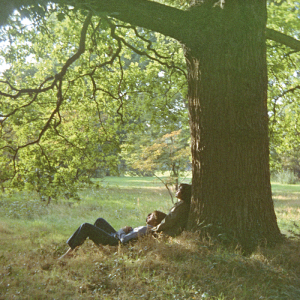
John Lennon had a rough childhood, and, some would argue, an even rougher life. Yes, fame and fortune may seem like guarantees for a fulfilling and carefree life, but this was far from the truth for Lennon. He never had much of a family; his mother died when he was 17, and his father was largely absent for most of his adolescence. Instead, Lennon, who always had a lifelong love for music, found family in his pals in the Quarrymen and, later, the Beatles. Undoubtedly, as the Beatles’ career progressed, the band grew closer and closer together. However, like many bands, tensions eventually arose between the egos of individual members; contracts and finances became more important than creativity and music, and the members (especially George Harrison) became increasingly interested in launching their own solo careers.
Second only to Harrison, it seemed like Lennon was the most anxious of the Beatles to delve into a solo career. And while Lennon and Harrison had solo albums during their Beatles tenure, they were nothing more than experimental, instrumental tracks they constructed in their spare time while they weren’t in sessions. Therefore, “Plastic Ono Band” was Lennon’s first spirited attempt at a purely solo record, and what an attempt it was.
At the time of the album’s sessions, Lennon was heartbroken about the breakup of the Beatles. His relationships with the other three members, which were almost familial bonds, had been reduced to blatant hatred and bitter envy. The first track of the album, “Mother,” is one of Lennon’s most harrowing and personal songs. He reflects on his traumatic adolescence; his largely absent father, Alfred; and his deep bond with his mother, Julia, who died unexpectedly when he was just 17 after being struck by a car. Lennon always struggled to bond with Alfred, and their attempt at reconciliation midway through the album’s recording failed so miserably that he never spoke to his father again. This estrangement only deepened the pain of losing his mother at such a formative age, a tragedy that haunted him for the rest of his life. The song’s ending features Lennon repeating the words, “Mama don’t go, Daddy come home,” with each recurrence growing more intense and passionate.
The next track, “Hold On,” is much more mellow yet still intensifies towards its end. Nevertheless, the song’s message is quite uplifting and features Lennon encouraging himself, his wife Yoko Ono, and the world around him that after all the pain and turmoil they have gone through, they will embrace happiness in the end. Though covered in ballads and slow-tempo tracks, “Plastic Ono Band” features some of Lennon’s hardest rocking songs. “I Found Out” and “Well Well Well” also explore similar themes of Lennon’s disillusionment with religious leaders and preachers in what Lennon perceives as a godless world.
However, the most powerful song on the album is its penultimate track, “God,” in which Lennon rejects the possibility of God and dismisses the need to worship a higher power. Instead, he claims that for him, and, perhaps, for most people in the world, the best thing to do is to believe in themselves foremost. God, Lennon insinuates, is not an omnipresent supreme being but is instead a representation of ourselves and how we carry out our own lives.
Lennon’s “Plastic Ono Band” remains the greatest Beatles solo album and possibly one of the most emotional and personal albums ever, even 50-odd years after its release. It’s clear that Lennon’s deeply political and personal lyrics, combined with the album’s grungy and minimalistic instrumentation, inspired musicians ranging from ’90s rock star Kurt Cobain to 2010s rapper Mac Miller and will most definitely influence many other aspiring artists to come.
John Lennon/Plastic Ono Band Song Ranking (Best to Worst)
1: Isolation (10/10)
2: Mother (10/10)
3: God/My Mummy’s Dead (10/10)
4: Working Class Hero (9.5/10)
5: Love (9.5/10)
6: Well, Well, Well (9.5/10)
7: Look at Me (9/10)
8: I Found Out (9/10)
9: Hold On (9/10)
10: Remember (8.5/10)
Overall Rating: 9.4/10
Brendan Kelso can be reached at bkelso@wesleyan.edu.



Leave a Reply